Regulation
OpenAI Executive Jan Leike Resigns, Calls for Stronger AGI Safety Measures
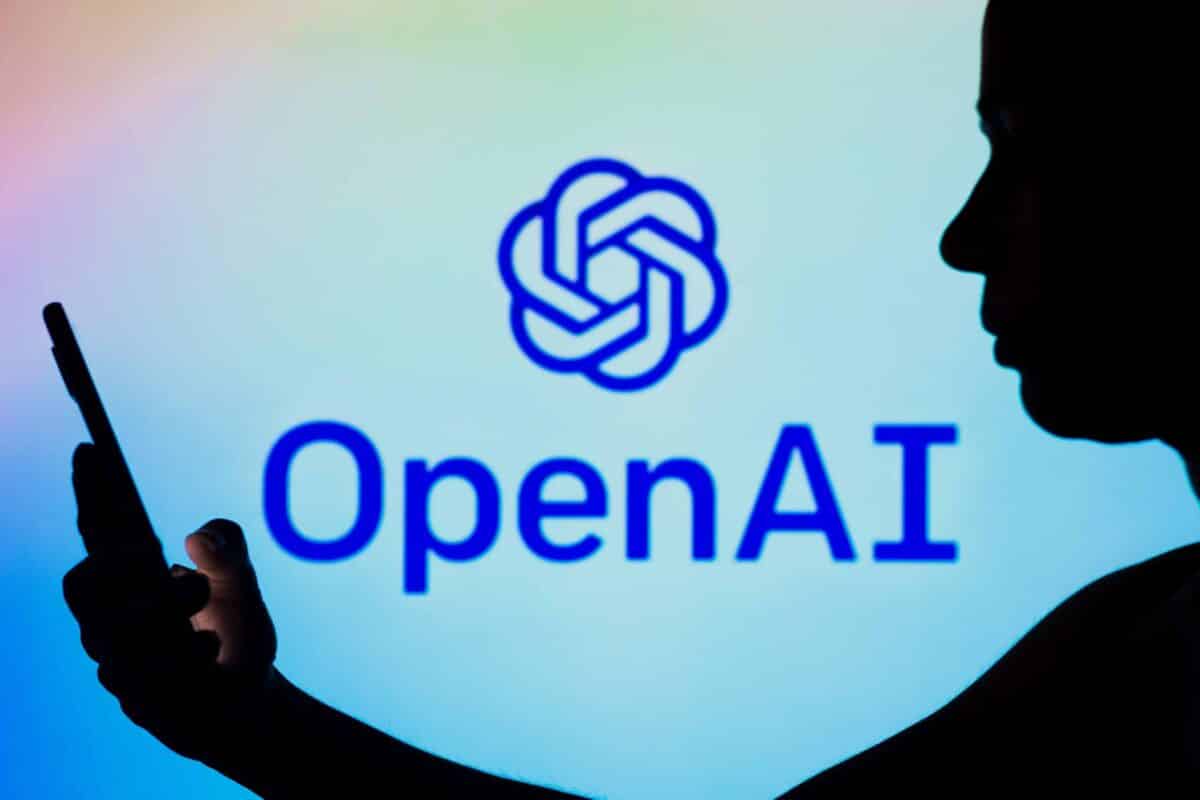
Jan Leike, the head of alignment in OpenAI and the leader of ‘Superalignment’ team has left this company due to his worries about its priorities which he thinks are more focused on product development than AI safety.
Leike made a public announcement of his resignation on May 17, through a series of posts on the social media platform X, which was previously known as Twitter. He stated that the OpenAI leadership was wrong in their choice of core priorities and they should place more emphasis on safety and preparedness as AGI development is moving forward.
Jan Leike’s Safety Concerns and Internal Disagreements
Leike, who had been with OpenAI for about three years, pointed out in his posts that the culture and processes around AI safety were being neglected by the development of “shiny products”. He expressed concern over the allocation of resources, saying that his team needed help to get the necessary computing power to carry out important safety research.
Building smarter-than-human machines is an inherently dangerous endeavor.
OpenAI is shouldering an enormous responsibility on behalf of all of humanity.
— Jan Leike (@janleike) May 17, 2024
“The construction of machines that are smarter than humans is a risky task by itself,” Leike quoted, thus indicating the OpenAI’s responsibility for humanity.
His resignation came almost at the same time as Ilya Sutskever’s departure. Sutskever, the co-leader of the ‘Superalignment’ team and OpenAI’s chief scientist, had already announced his resignation a few days earlier. The departure of Sutskever was a noticeable since he co-founded OpenAI and participated in various research projects, including the development of ChatGPT.
Dissolution of the Superalignment Team
In view of the recent resignations, OpenAI has decided to disband the ‘Superalignment’ team and its functions will be merged with other research projects in the company. Bloomberg told that this decision is a result of the internal restructuring which has been going on since the governance crisis in November 2023 when CEO Sam Altman was temporarily removed and President Greg Brockman lost his chairmanship.
The ‘Superalignment’ team, created to deal with the existential risks that were brought by advanced AI systems and was responsible for developing solutions of controlling and steering superintelligent AI. Their work was considered as the most important in making preparations for the next generations of AI models.
Although the team was dissolved, OpenAI has promised that research on long-term AI risks will go on under the direction of John Schulman, who is leading also a team which develops how to fine-tune AI models after training.
OpenAI’s Current Trajectory and Prospects
Leike and Sutskever’s resignations, together with the disbanding of ‘Superalignment’ team, have been followed by a high-level scrutiny on AI safety and governance at OpenAI. This is the result of a long period of contemplation and disagreement, especially after Sam Altman was dismissed and then later rehired.
The departures and restructuring indicate that OpenAI may not be committed to the safety as it continues to develop and release advanced AI models. Lately, OpenAI has introduced a new “multimodal” AI model, GPT-4o, which can interact with humans more naturally and in an almost human-like way. Although this achievement proves OpenAI’s technological skills, it also reveals the ethical issues concerning privacy, emotional manipulation, and cybersecurity risks.
Though there is a lot of commotion, OpenAI still sticks to the main goal which is to create AGI safely and for the good of humanity. In a post on X, Sam Altman, OpenAI’s CEO admitted Leike’s work and stressed the company’s commitment to AI safety.
“I’m very grateful to @janleike for his great contributions to OpenAI’s alignment research and safety culture, and I am really sad that he is leaving. He’s right we have a lot more work to do; we are determined to do it. I will post my longer version in the next couple of days,” Altman wrote.
Read Also: Binance Pushes For SHIB, USTC, AGIX Liquidity and Trading Boost
The presented content may include the personal opinion of the author and is subject to market condition. Do your market research before investing in cryptocurrencies. The author or the publication does not hold any responsibility for your personal financial loss.
Regulation
US SEC Acknowledges Fidelity’s Filing for Solana ETF
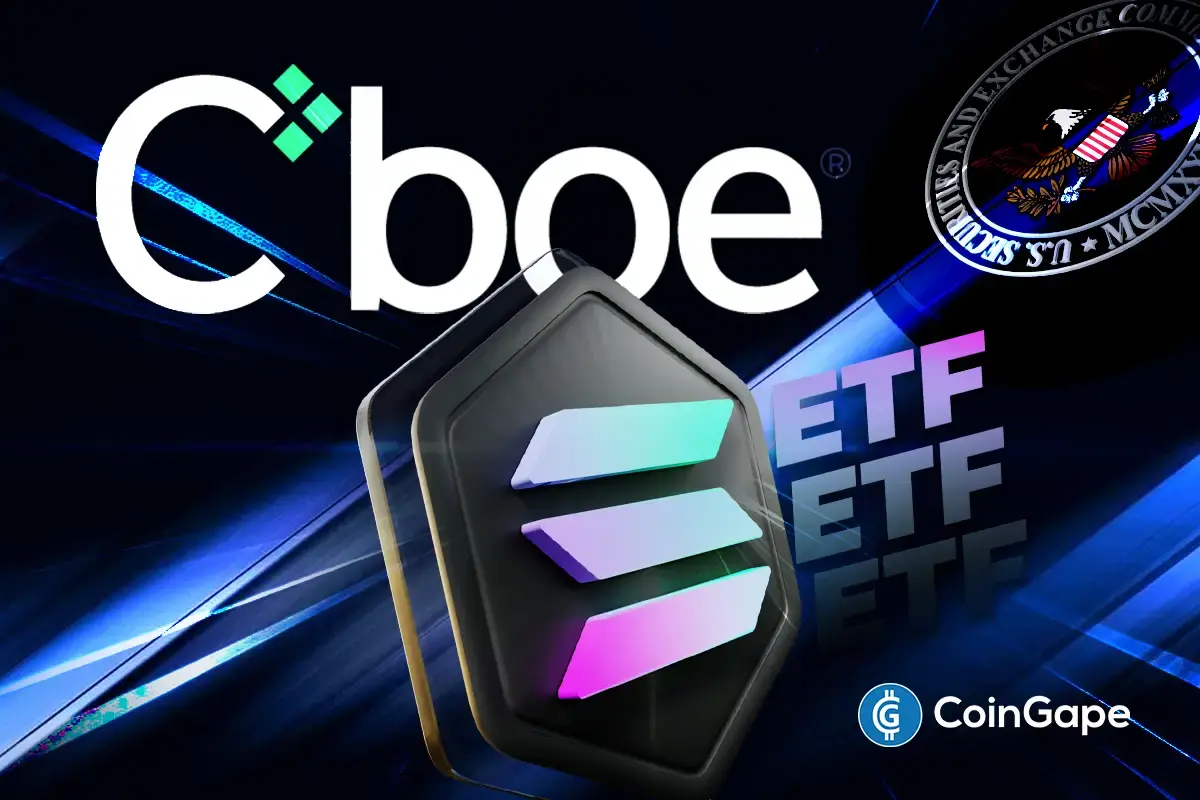
The U.S. Securities and Exchange Commission (SEC) has formally acknowledged the filing for Fidelity’s spot Solana (SOL) Exchange-Traded Fund (ETF).
This marks a key development in the financial industry, as Fidelity seeks to list its Solana ETF on the Cboe BZX Exchange. The acknowledgment comes after Fidelity submitted a proposed rule change, paving the way for the potential approval of the product.
Fidelity’s Spot Solana ETF Proposal
The SEC’s acknowledgment follows Fidelity’s filing to list and trade shares of the Fidelity Solana Fund under the Cboe BZX Exchange. The proposed rule change, initially submitted on March 25, was later amended on April 1, 2025, to clarify certain points and add additional details.
The amended proposal aims to list the Solana ETF under BZX Rule, which pertains to commodity-based trust shares. According to the Cboe BZX Exchange, Fidelity plans to register the shares with the SEC through a registration statement on Form S-1.
Fidelity’s experience with crypto ETFs, having launched the Fidelity Wise Origin Bitcoin Fund (FBTC) and the Fidelity Ethereum Fund (FETH), has prepared it for this new initiative. FBTC has drawn substantial interest, accumulating nearly $17 billion in assets, while FETH currently manages around $975 million.
This Is A Developing News, Please Check Back For More
Disclaimer: The presented content may include the personal opinion of the author and is subject to market condition. Do your market research before investing in cryptocurrencies. The author or the publication does not hold any responsibility for your personal financial loss.
Regulation
US Senate Banking Committee Approves Paul Atkins Nomination For SEC Chair Role

The U.S. Senate Banking Committee has voted to approve Paul Atkins’ nomination for the role of Chair of the Securities and Exchange Commission (SEC). The vote, which took place on Thursday, passed with a narrow margin of 13-11, along party lines.
Paul Atkins, nominated by President Donald Trump, now moves one step closer to taking over the top regulatory position at the US SEC.
Senate Banking Committee Approves Paul Atkins Nomination
Paul Atkins’ nomination for SEC Chair has received approval despite sharp opposition from Democratic members of the Senate Banking Committee. The vote was entirely split, with Republicans supporting Atkins and all Democrats opposing the decision.
This partisan divide highlights the contentious nature of Atkins’ confirmation, which had been under scrutiny for several reasons.
The committee’s approval now clears the path for Atkins to proceed to the full Senate for a final confirmation vote. Given the Republican-controlled Senate, it is widely expected that Atkins will secure the necessary votes to take over the SEC leadership. With Republicans holding a 53-47 majority in the Senate, the confirmation process is anticipated to move forward swiftly.
This Is A Developing News, Please Check Back For More
Disclaimer: The presented content may include the personal opinion of the author and is subject to market condition. Do your market research before investing in cryptocurrencies. The author or the publication does not hold any responsibility for your personal financial loss.
Regulation
Kraken Obtains Restricted Dealer Registration in Canada

Cryptocurrency exchange Kraken has obtained a Restricted Dealer registration in Canada. The registration comes after completing a pre-registration undertaking (PRU) process with Canadian authorities.
The exchange has also announced the appointment of Cynthia Del Pozo as its new General Manager for North America. Del Pozo will oversee Kraken’s growth initiatives in Canada.
Kraken Completes PRU Process In Canada
Kraken’s Restricted Dealer registration marks the completion of a thorough pre-registration undertaking (PRU) process with Canadian regulators. The registration places Kraken under the supervision of the Ontario Securities Commission (OSC). This oversight ensures users have access to secure crypto products within a properly regulated local ecosystem.
According to the Canadian Securities Administrators (CSA), the Restricted Dealer registration is one of eight firm registration types in Canada. This particular classification is used for firms that “do not quite fit under any other category.” It also comes with specific requirements and conditions set by securities regulators.
Kraken’s regulatory achievement comes during a period of change in the Canadian crypto sector. Just months earlier, competitor Gemini exchange announced its departure from the Canadian exchange market by the end of 2024. This was a move that surprised many and raised questions about cryptocurrency regulation clarity in the country.
Kraken Introduces New Canadian GM
Del Pozo has joined Kraken to lead its Canadian operations as the new General Manager for North America. She has nearly 15 years of experience in corporate development, operations, and fintech consulting. Del Pozo will help to guide Kraken’s expansion across Canada during this important phase of crypto’s development in the region.
“Canada is at a turning point for crypto adoption, with a growing number of investors and institutions recognizing digital assets as a vital part of the financial future. I’m thrilled to join Kraken’s mission at this critical moment, and to lead our expansion efforts, ensuring we continue to serve our clients long-term with innovative and compliant products,” said Del Pozo.
In her role, Del Pozo will focus on strengthening Kraken’s regulatory relationships and also scaling the company’s presence throughout North America.
Del Pozo also commented on the registration achievement: “This Restricted Dealer registration is testament to the high bar Kraken has always set for consumer protection, client service, and robust security. We’re excited to continue expanding our world-class investment platform and to deliver innovative products that provide real-world utility to Canadians.”
The Exchange’s Continued Growth In Canada
Over the past two years, the cryptocurrency exchange has shown steady expansion in Canada while working through the PRU process with regulators. During this period, the exchange has doubled its team size and monthly active users.
According to the official blog post figures, the firm now has more than $2 billion CAD in total client assets under custody. Kraken has also increased support for some of the most popular cryptocurrencies. It provides several CAD spot trading pairs that enable Canadians to trade crypto without paying expensive foreign exchange fees.
According to Innovative Research Group’s 2024 Investor Survey, 30% of Canadian investors currently own or have owned cryptocurrencies. Likewise, a KPMG Canada survey discovered that 30% of Canadian institutional investors now have exposure to cryptocurrencies, which means widespread adoption across investor types.
Disclaimer: The presented content may include the personal opinion of the author and is subject to market condition. Do your market research before investing in cryptocurrencies. The author or the publication does not hold any responsibility for your personal financial loss.
-

 Regulation23 hours ago
Regulation23 hours agoUS Senate Banking Committee Approves Paul Atkins Nomination For SEC Chair Role
-

 Market22 hours ago
Market22 hours agoBinance Managed 94% of All Crypto Airdrops and Staking Rewards
-
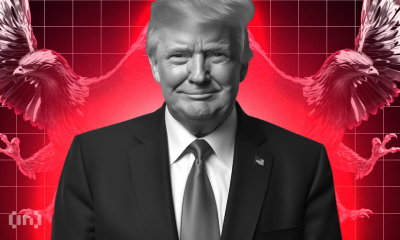
 Market24 hours ago
Market24 hours agoTRUMP Token Hits Record Low Due To Liberation Day Tariffs
-

 Regulation20 hours ago
Regulation20 hours agoUS SEC Acknowledges Fidelity’s Filing for Solana ETF
-

 Market19 hours ago
Market19 hours agoWormhole (W) Jumps 10%—But Is a Pullback Coming?
-

 Market23 hours ago
Market23 hours agoPi Network Price Falls To Record New Low Amid Weak Inflows
-

 Market20 hours ago
Market20 hours agoRipple Shifts $1B in XRP Amid Growing Bearish Pressure
-

 Altcoin19 hours ago
Altcoin19 hours agoAltcoin Season Still In Sight Even As Ethereum Struggles To Gain Upward Momentum






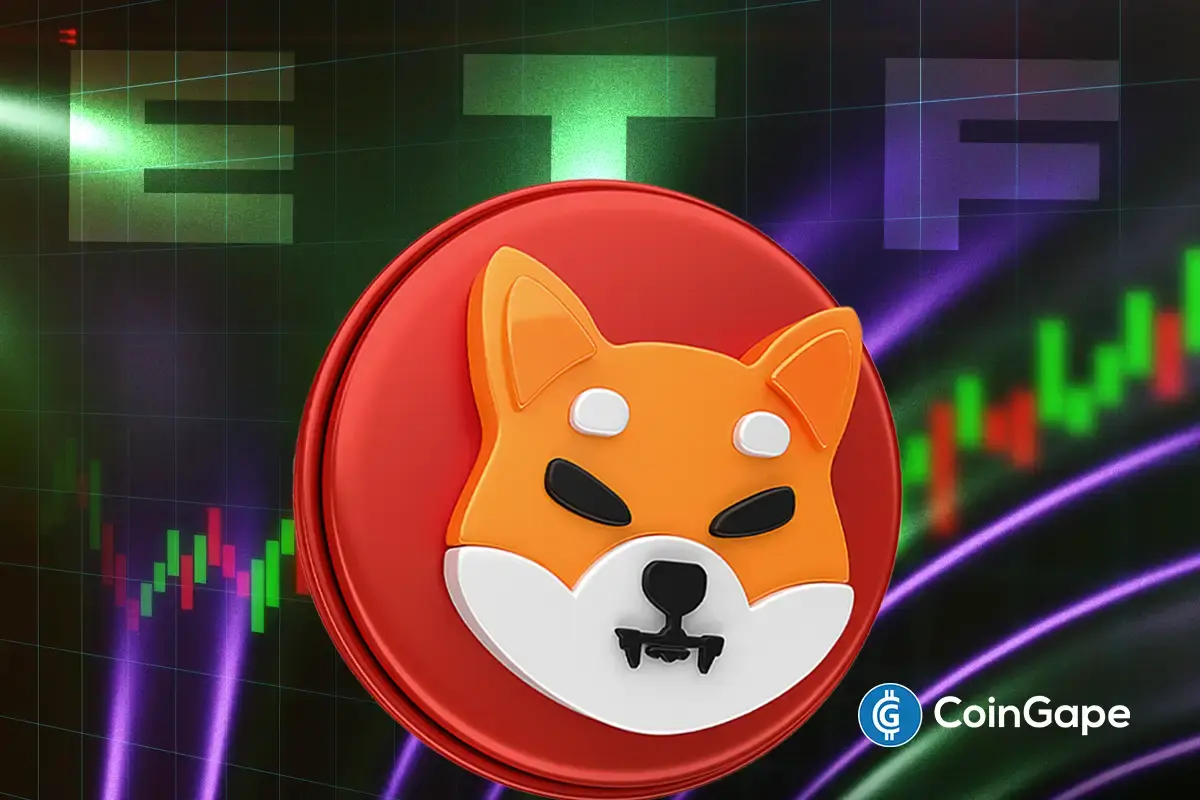




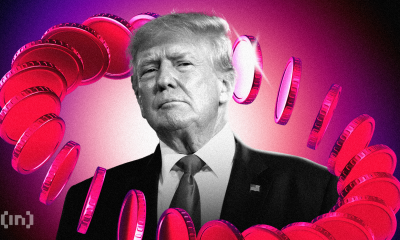












✓ Share: